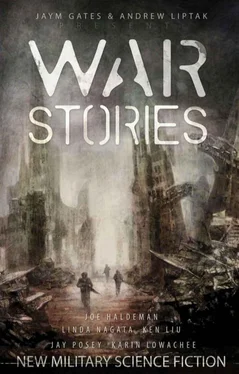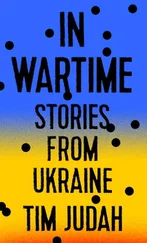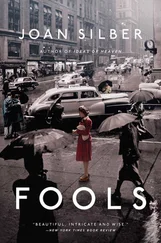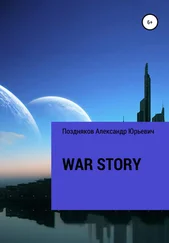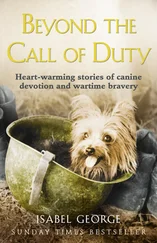Instinctively, I pressed myself against the wall. Johan was so much bigger than me now. The past seventeen years had been bountiful, it would seem, and my brother’s girth spoke of too much of a good thing. He looked like Oom Swart from Dwarsfontein over the pass.
Odd that I’d faced down enemies on a battlefield, yet when family turned the home into a warzone, I cringed like a beaten dog.
“You going to stare at me like I’m the Devil?” Johan asked, his face contorted in a ferocious scowl. He was probably embarrassed that I’d caught him bitching at Sandra.
I shook my head, hating how like a cockroach I felt in my childhood home, in the very kitchen where Ma used to bake. Try as I might I could hardly recall those warm, yeasty smells and the taste of butter melted on a crust of fresh bread.
“Well, you’re going to have to sort out your life now that you’re back. Can’t have you lying about like the other vets. You’ve still got all your limbs. You gonna have to pull your weight round here.”
“What the—” My anger surged hot and sudden. “My life is—” Who was he to point fingers when it seemed like his own life had visible cracks?
But he was out the door already, his back turned on me like I was no more than one of the farmworkers to be ordered around.
I stood for a few moments, just to regain my composure. I’d wanted to ask the other question that I hadn’t dare voice since my arrival. How is Ma? Not talk about my problems light years away. I’d barely had a chance to shake the dust off my feet and we were already arguing.
Seventeen years yawned like a bottomless chasm between us, filled with accusations. Where were you when Pa fell ill and died? Where were you when the Great Fires burnt down the plantations? Where were you when the modified anthrax killed all the livestock?
To say that I was at war, fighting so our enemy would not lay waste to our precious farm or carry away the children, would not wash with my brother. Those who remained earthbound took it for granted that the wind always raced through the scrubby veld or that rain came in the cooler months. The sun that rose and set on their world was always tame, yellow.
If I told only a fraction of the stories I held locked away in my heart, would my family be able to sleep at night? My hands were red with blood, if only they had eyes to see, and no amount of scrubbing would ever remove the stain. I’d done it all for them.
Dare I remind them that it was my AF stipend that connected the electricity to Krommedrif or sent my nieces to a private school in Clanwilliam? It was my blood money that kept my brother’s tractor pulling the plough when the crops failed.
Nowadays, the crops failed more often than not.
Ma was in a back room—one where she used to keep her sewing things and that had been set aside for guests. Now Ma lay contorted beneath a sheet. The linen was half twisted from the bed and the stench of piss hung heavy in the air. I remained on the threshold, unable to take that fateful first step that would carry me to the foot of Ma’s narrow cot.
Her condition had deteriorated even before I decided to return home. I could read between the lines when they stopped letting Ma join on the family calls, which grew steadily further and further apart the longer I remained on active duty. There was always some sort of excuse—I had to train raw recruits, Johan had to bring in the crops, no secure connection… it was all too easy to reschedule our calls. After all, the farm wasn’t going anywhere.
The last I’d seen of Ma she’d seemed to somehow slump in on herself, in only six months. “Where is the other one?” she’d asked over and over again, meaning Pa. Since then, within the space of three years, she’d shrivelled into this husk that made me think more of the mummified remains of those long dead in the vacuum of space rather than a living, breathing woman.
Ma climbs like one of the klipspringers, and I struggle to keep up with her. We’ve gone much higher than before, and below us the valley is spread out like a patchwork quilt of fields. The barley will ripen early this year. Pa’s tractor is a tiny toy near the vineyard, and it raises a plume of dust behind it.
“It’s here somewhere,” Ma calls. “C’mon, Rachel!”
She vanishes for a moment and I scramble to follow. Then we’ve reached the ledge and I flop down gratefully to let my poor arms and legs rest.
Ma, however, peers at the red oxide figures painted across the rock face. They describe a graceful arc running from right to left, clutching their spears. To the far left is a big blob Ma says is an eland. When I look carefully I can still make out the white pigments the ancient artists used to denote the heads and feet of these giant antelope.
“You only ever get eland in the zoos and parks now,” says Ma. “But once upon a time, in the days of your grandfather’s great–great–grandfather, when Mantis still walked among the people, we hunted the eland. Your forefathers painted these pictures before the Dutch settled.”
In many ways, I had become a hunter of sorts, just like my ancestors, who’d left their images on rock faces, and it was Ma who’d filled my head with all the stories about the olden times. Names, faraway places. All mixed up.
“I’m back, Ma,” I whispered.
The thing in the bed that wasn’t my mother anymore shifted slightly and craned its neck before it flopped down again. A broken thing, like the time I found a bird that had flown into the lounge window. I’d run to Pa with the dove and he’d taken it from me and wrung its neck. Just like that. Then given me a hiding later for crying to Ma about it.
My heart clenched painfully but my eyes remained dry. This thing in the bed wasn’t Ma. Then the guilt for those missing years gnawed and gnawed like a mole rat. You could have been here. All those times lost. You’re a terrible daughter .
“I want to go home,” she mumbled and almost raised an arm in supplication.
“You are home,” I replied.
Her only response was a garbled, ululating cry. I didn’t stay to hear more.
Sandra was in the media lounge watching some stupid show about fashion makeovers. Even though I stood within range of the wall–to–wall screen, she remained so engrossed in the fashionista’s efforts with a dowdy matron that she didn’t bother looking up.
“Ma’s nappy needs changing,” I said.
Sandra glared at me. “I told Essie to do it after lunch. Should still be fine.”
“It smells like it hasn’t been cleaned all day.”
“Essie!” Sandra shrieked, and I jerked back a step, surprised by the volume and pitch of my sister–in–law’s voice. “ Where are you? Esssieee? ”
A faint response drifted toward us from somewhere within the house. “ Ja, madam ?”
Sandra stabbed at the console to silence the programme, then rose just as the hapless Essie entered the room.
Poor Essie darted her gaze from me then to Sandra and back again. I was reminded of a childhood visit to the Swarts. Old Mrs Swart had used an imperious tone similar to the one Sandra employed. Pa had always said we wouldn’t order our workers around like that, and my face burnt at the sinking realisation that this was exactly how we’d become. As people had lived two hundred years ago, during the apartheid times.
Essie used to bathe me, dress me, and feed me. I grew up with her son, Derik, and we’d run all over Krommedrif together before our AF days. We were best friends forever, and it didn’t matter that his dad was a farmworker and mine was the farmer.
Читать дальше
